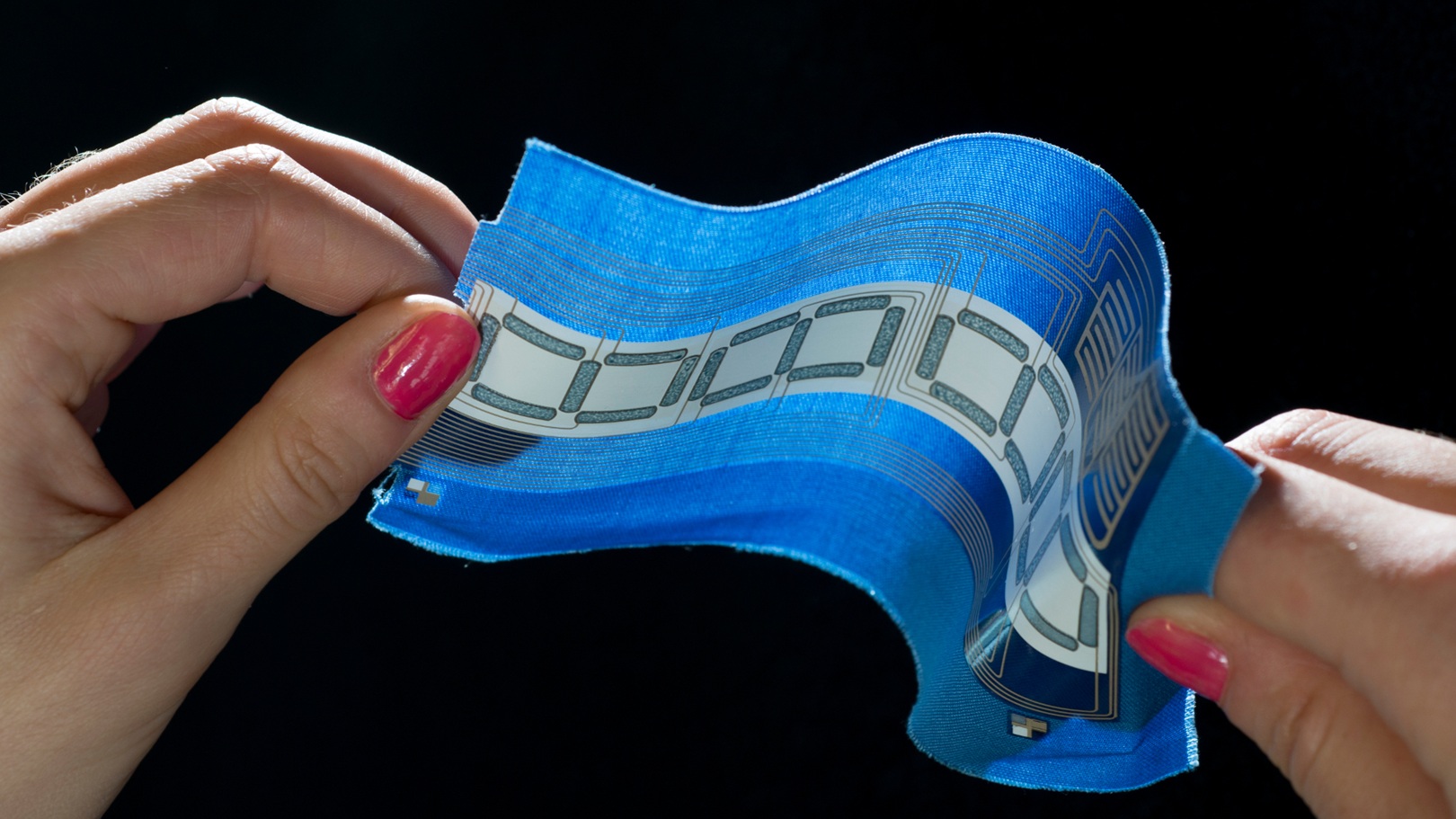
The Centre for Flexible Electronics and E-Textiles (C-FLEET ) conducts research into soft, conformable materials for a range of applications, including personal monitoring and healthcare, flexible energy-harvesting power supplies and storage, as well as use in industry, agriculture, civil engineering, the marine environment, and the automotive sector.
Our current areas of research include flexible printed circuits, where we are developing printed organic electrochemical transistors for multiplexing and switching applications. In the field of soft smart materials, researchers in Electronics and Computer Science (ECS) have a longstanding track record in developing materials that can sense and respond to specific stimuli, such as mechanical forces, electrical signals, or magnetic fields.
We are also exploring textile-based energy storage, where textile structures act as a scaffold for integrating supercapacitors and batteries directly into fabric. Working on printed functional inks for e-textiles, we have developed a range of co-compatible, low-temperature inks designed for use on textiles.

Our research into textile-based energy harvesting has led to the development of various techniques to harness ambient energy, providing an alternative integrated power supply. Additionally, we are working on integrated electronics in textiles, creating flexible filament circuits and a novel packaging method for integration into yarns and fabrics.
We also investigate flexible radio frequency (RF) antennas, focusing on the design, fabrication, and testing of antennas and systems for RF energy harvesting and communication across multiple frequency bands. Finally, in green electronics, we are exploring the design, materials, and manufacture of printed and flexible electronics with the aim of promoting reusability or ensuring biodegradability.

“C-FLEET brings together world-leading researchers within ECS working on flexible electronic devices, systems and materials with applications ranging from large-scale wave energy harvesting to printed electronics. A particular strength is the area of electronic textiles (e-textiles) that enable, for example, smart health monitoring garments. Through a variety of UK and EU projects, we have developed a suite of flexible, low-temperature, smart inks for use on textiles and developed flexible circuit encapsulation techniques that enable invisible integration within fabrics. The Centre benefits from exceptional facilities that cover hardware and software development, system assembly and a full range of testing. The aim for C-FLEET is to develop the technology towards commercialisation and deliver practical, robust systems that address the challenges of real-world applications.”
Professor Steve Beeby, Director